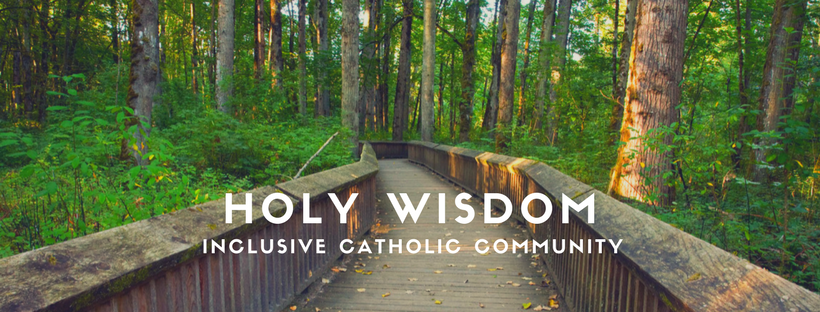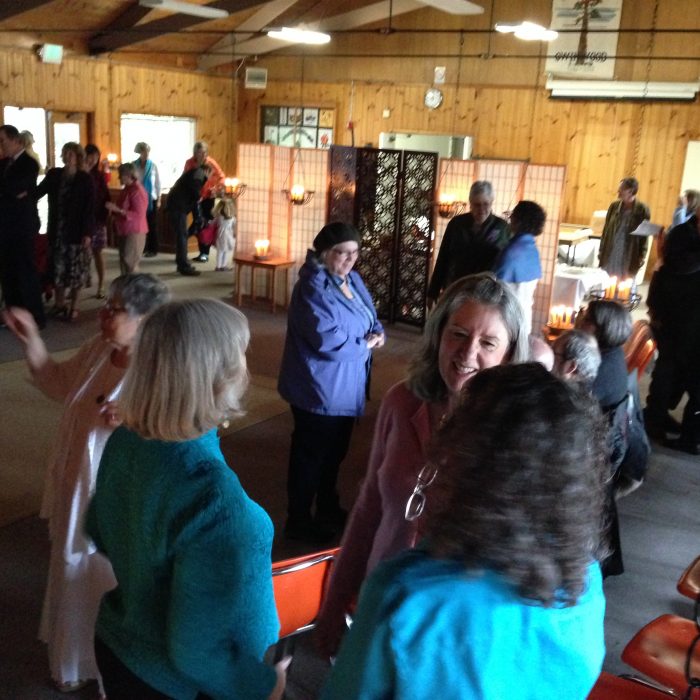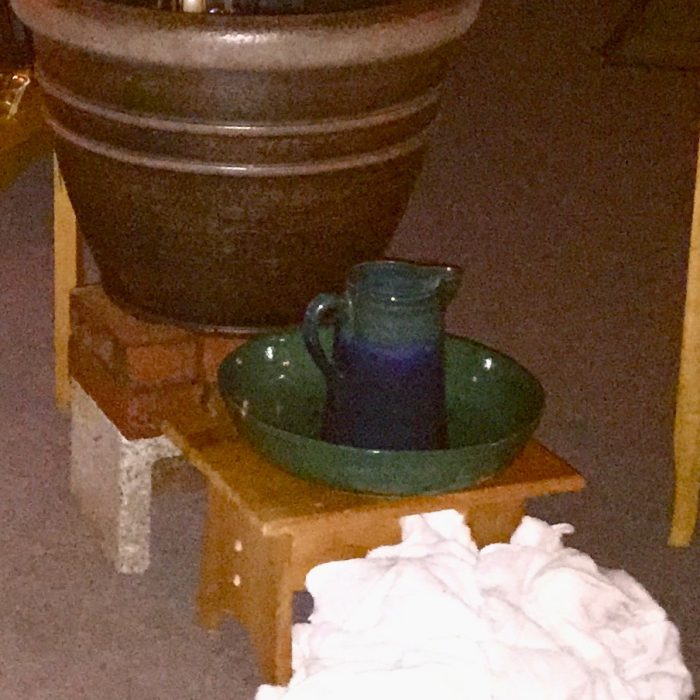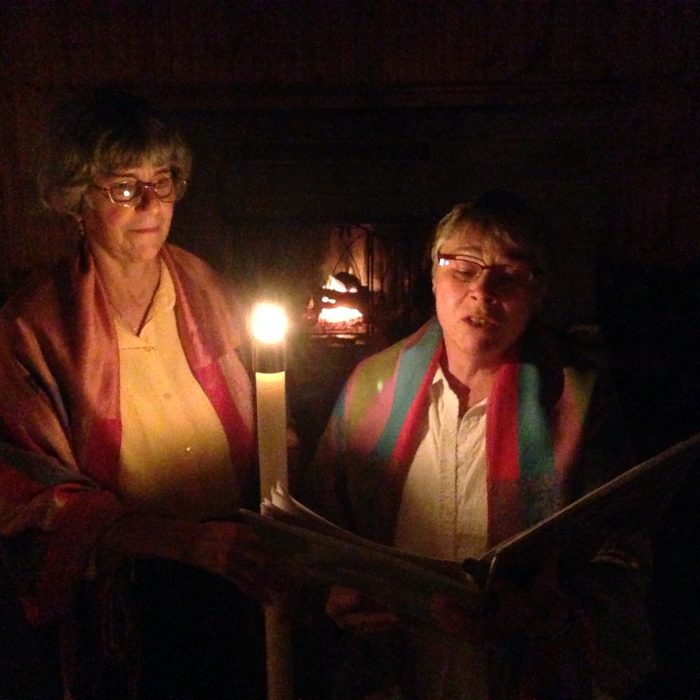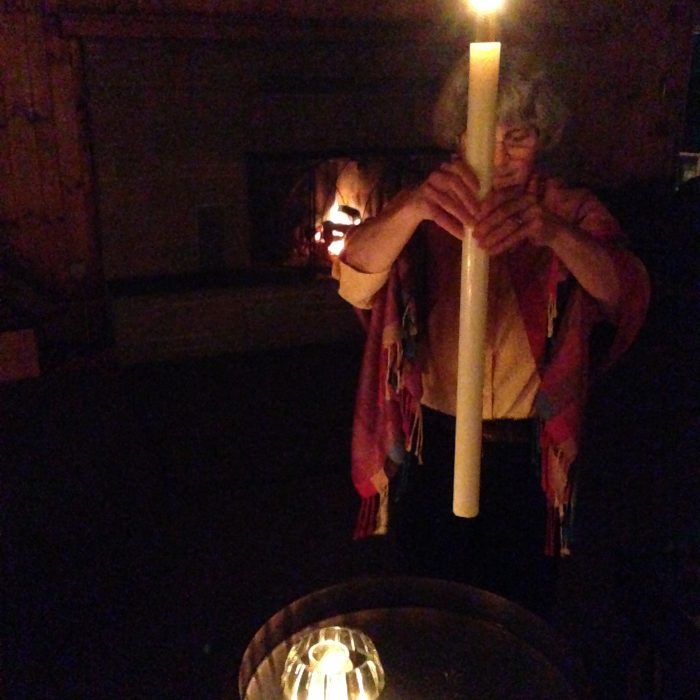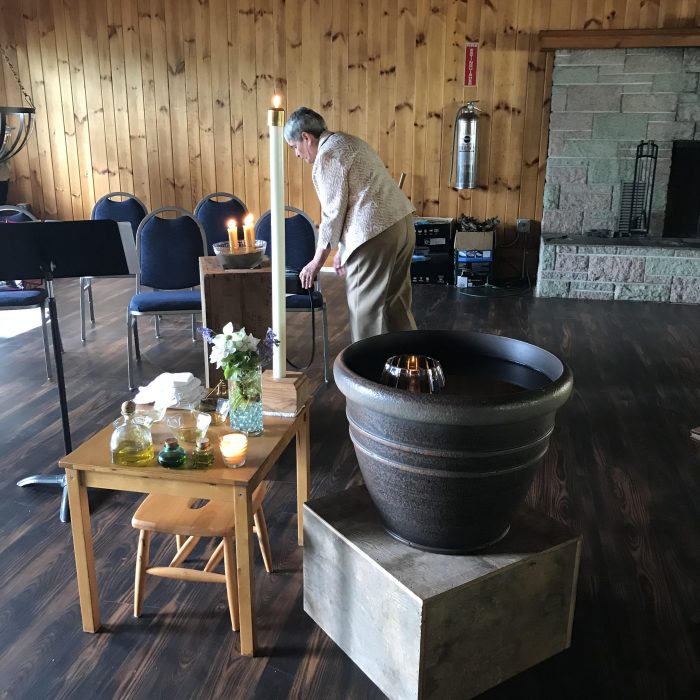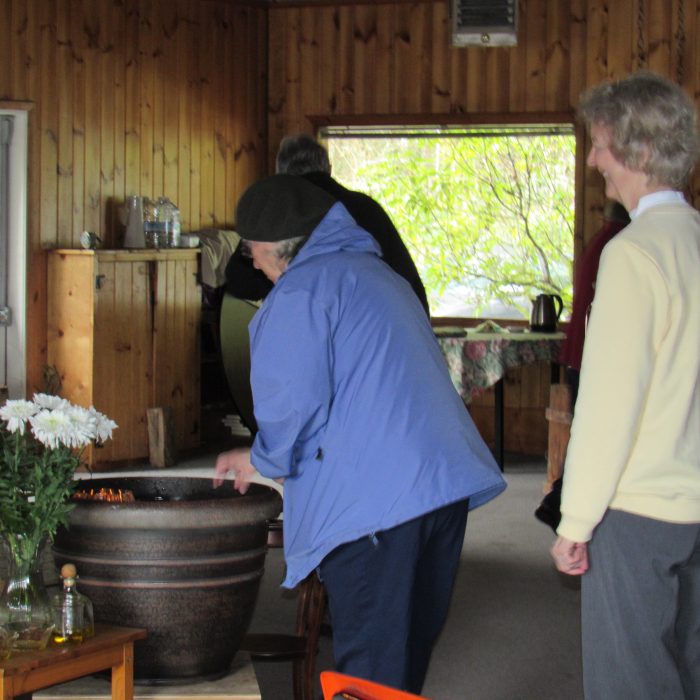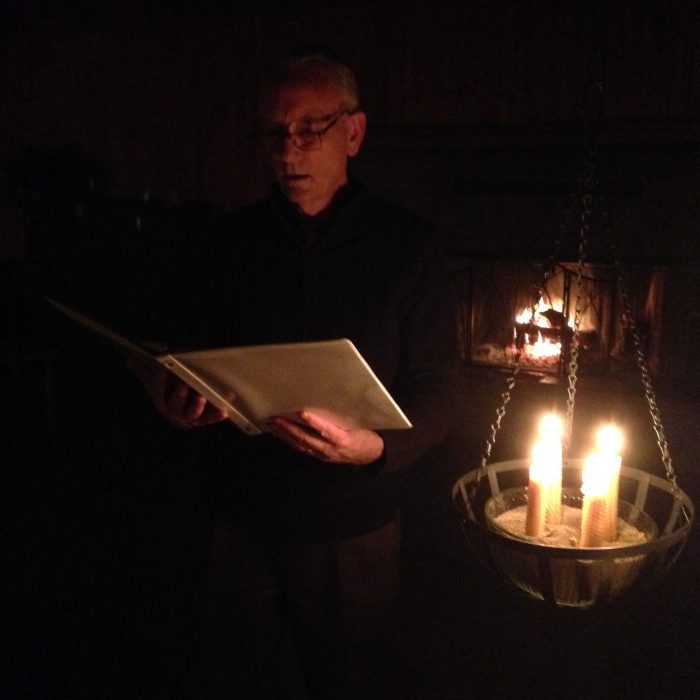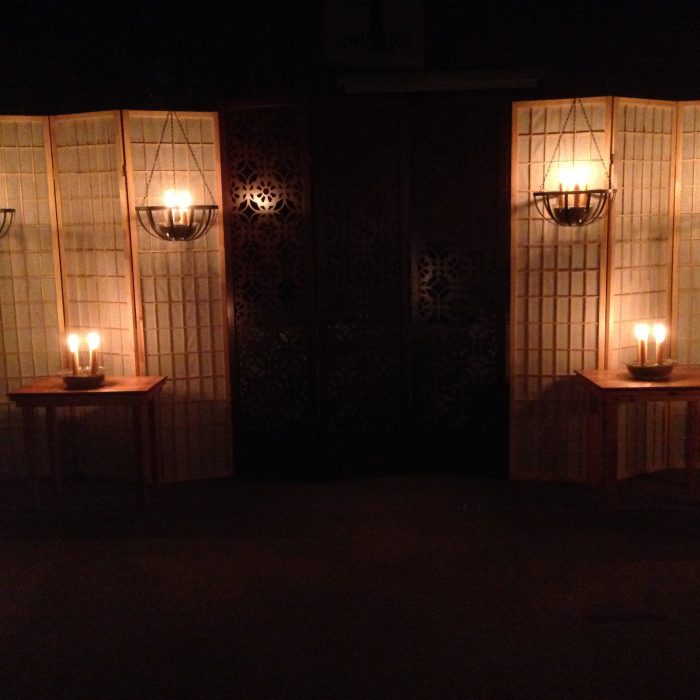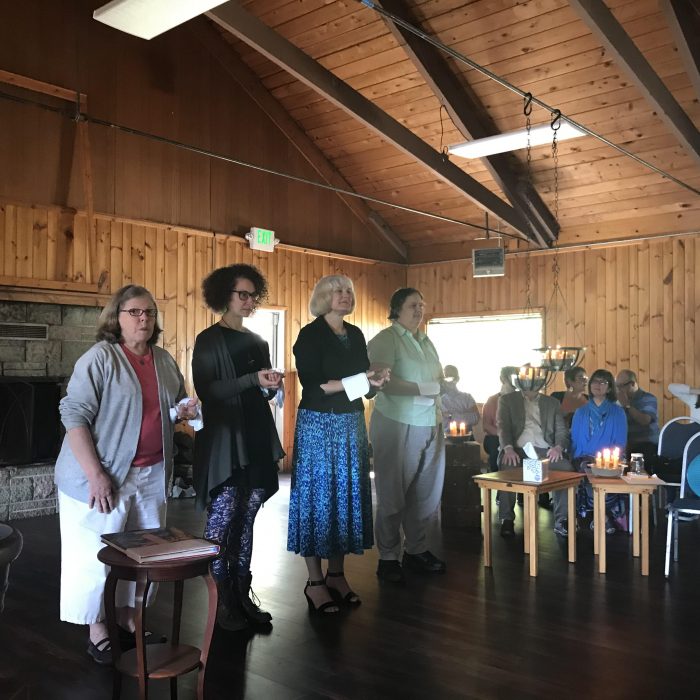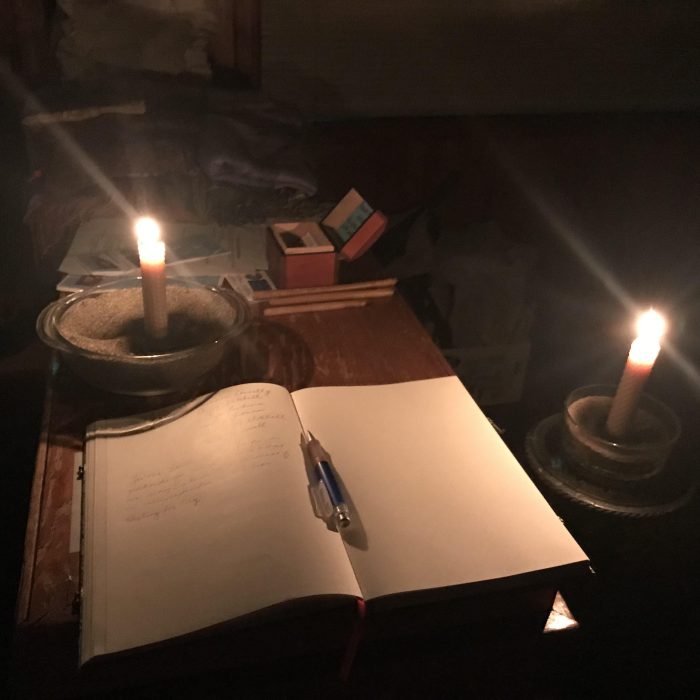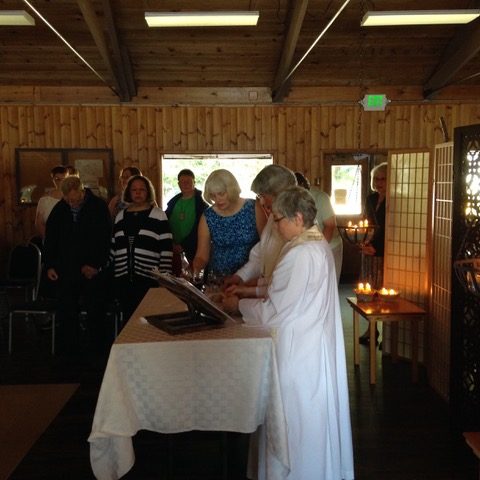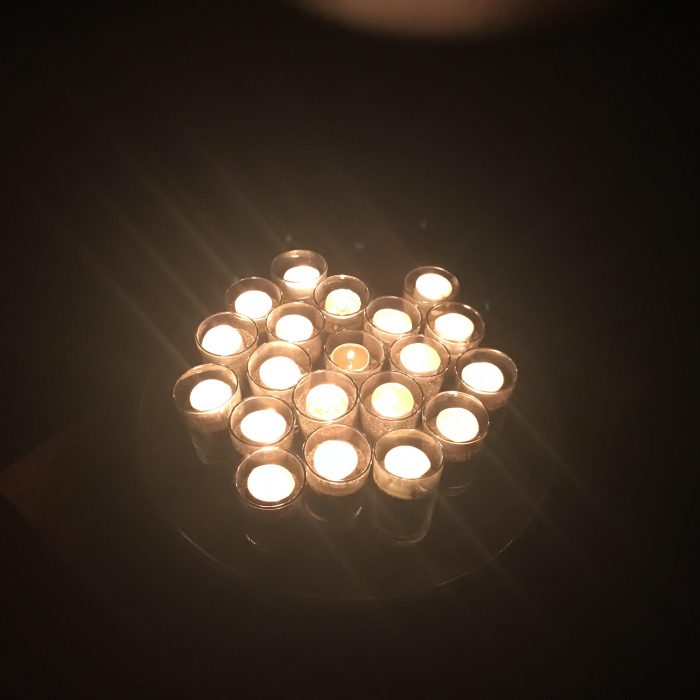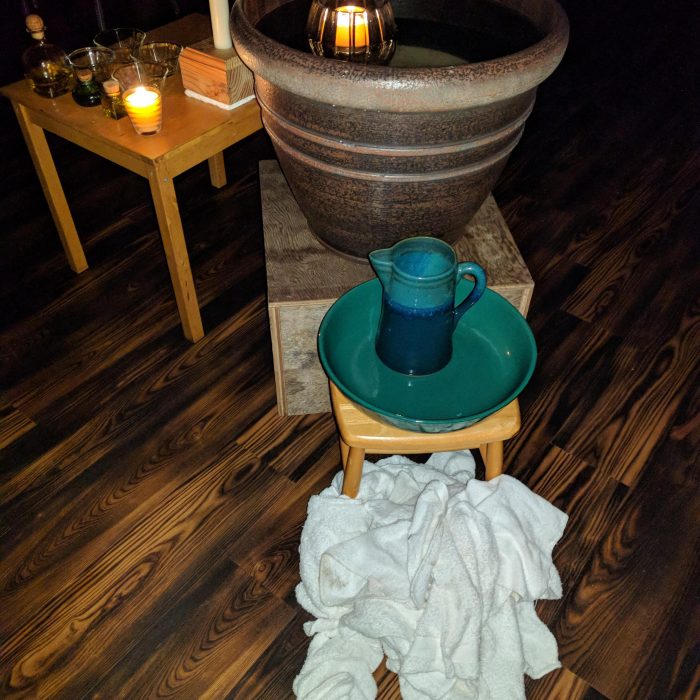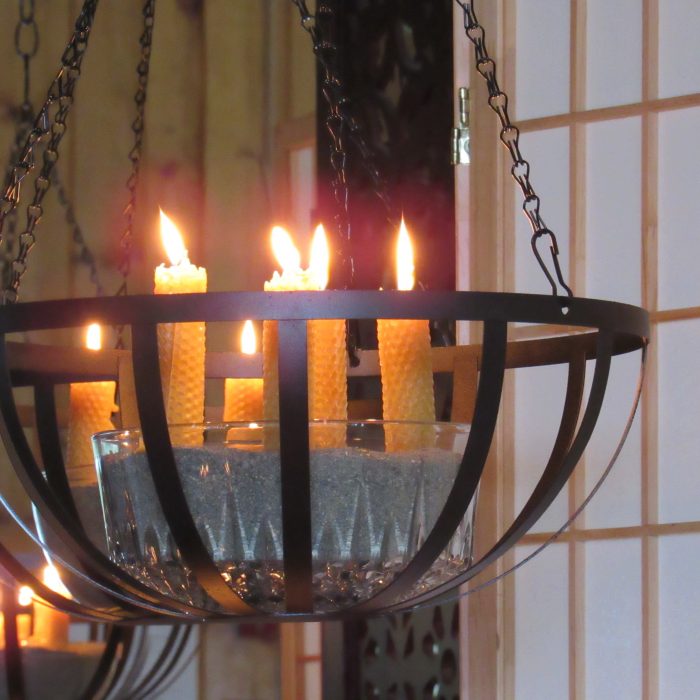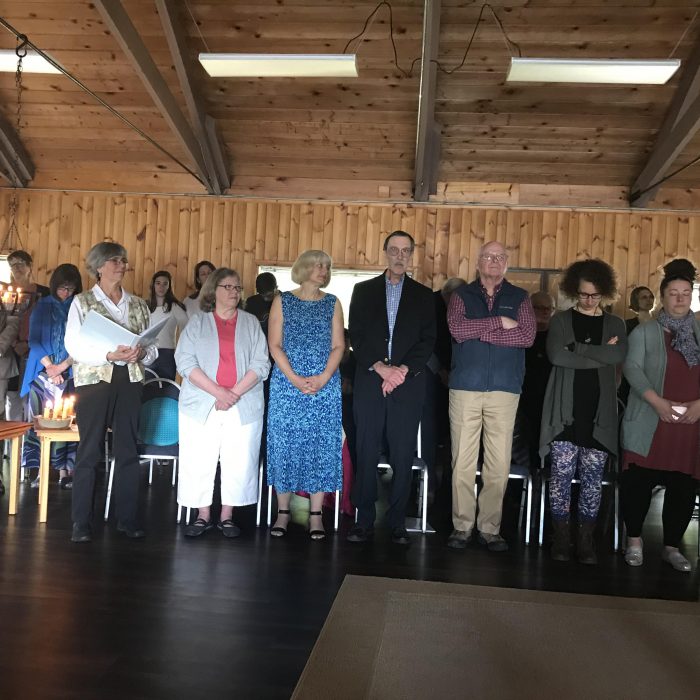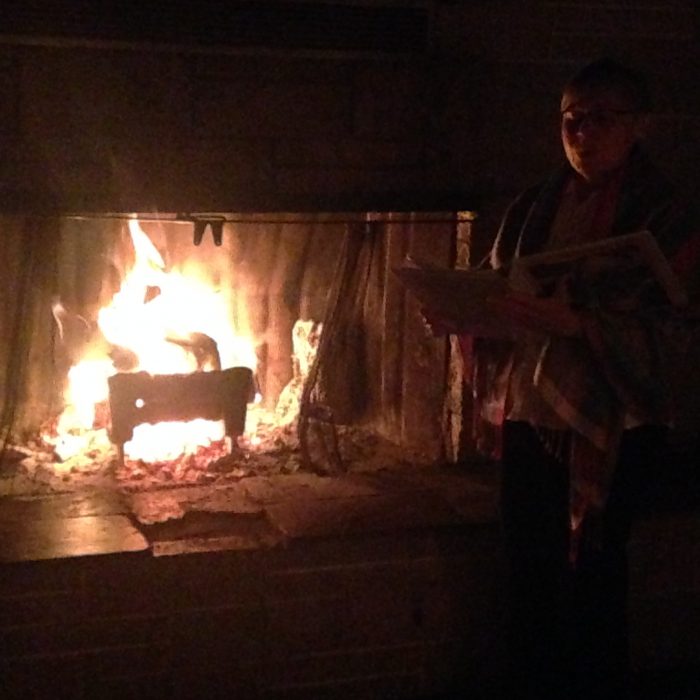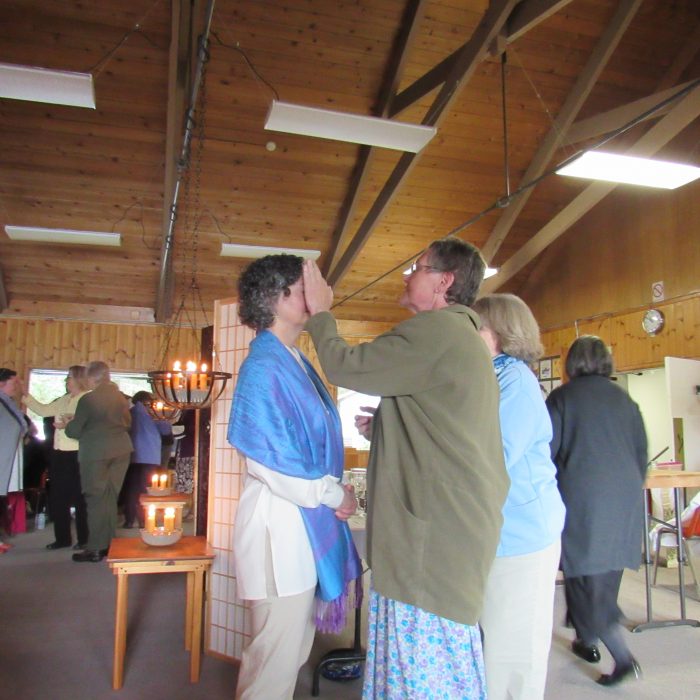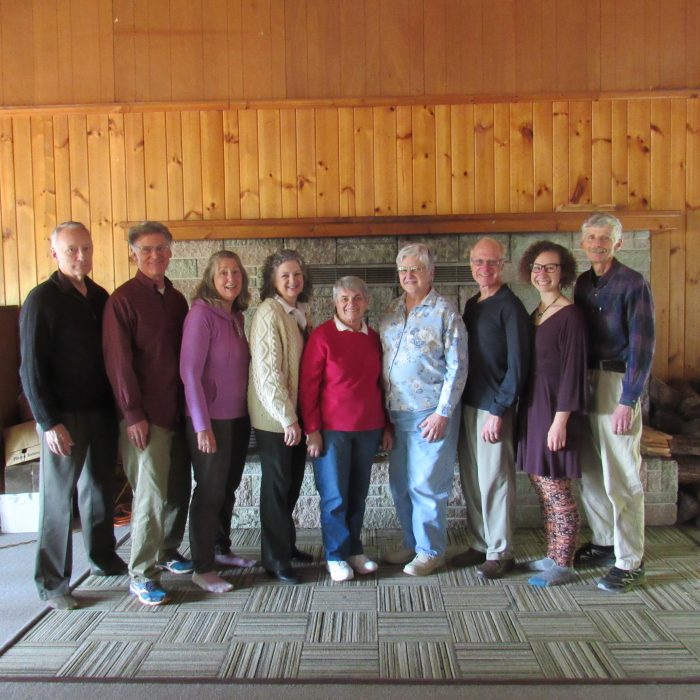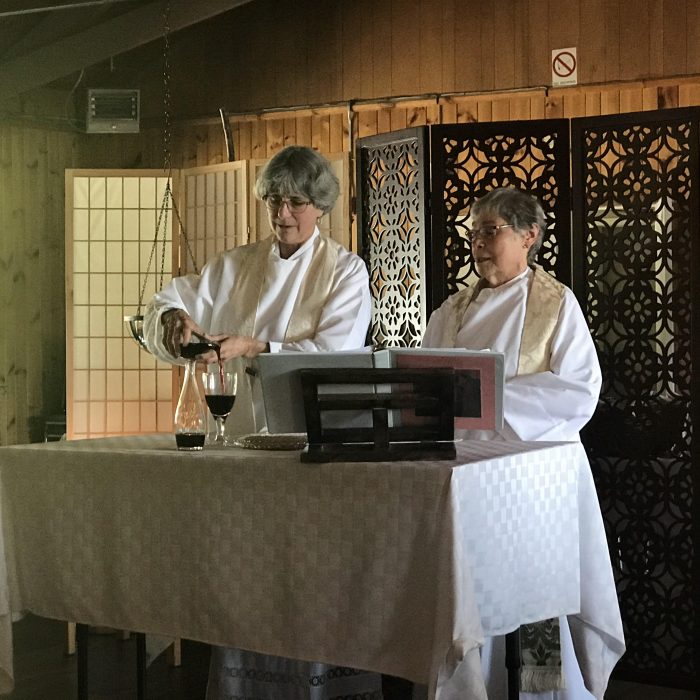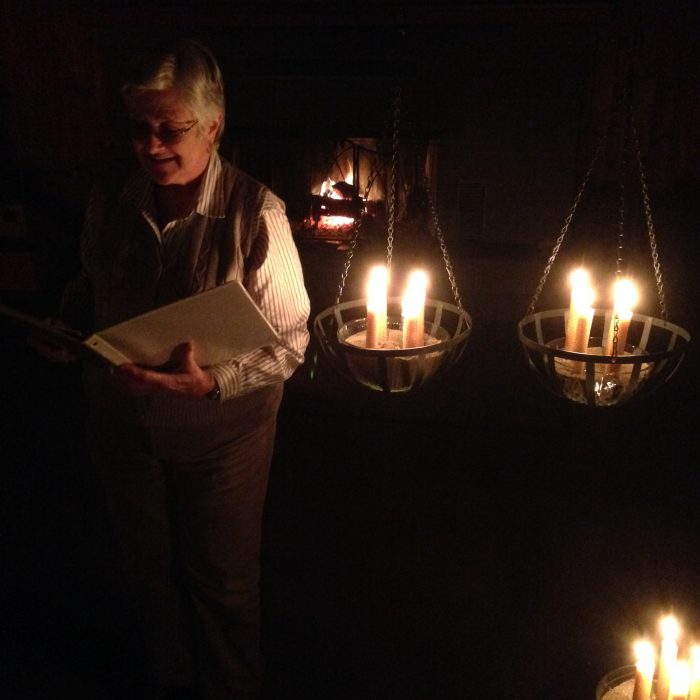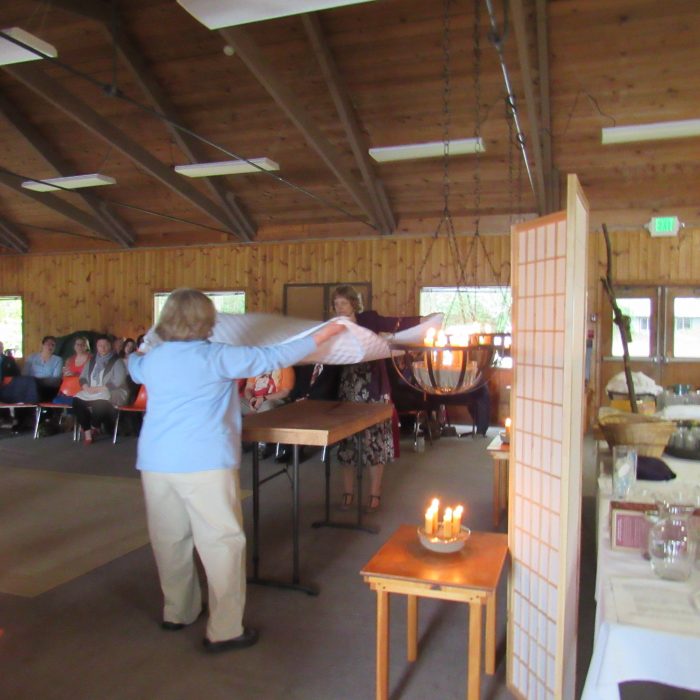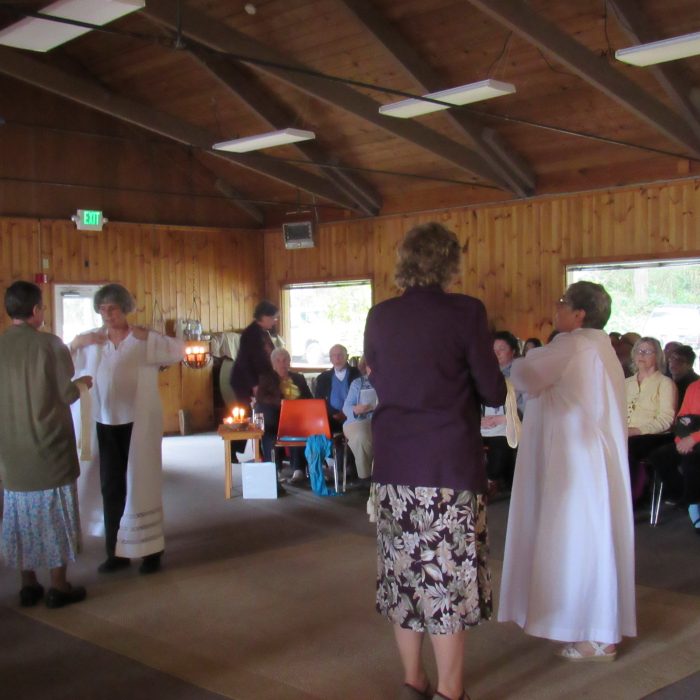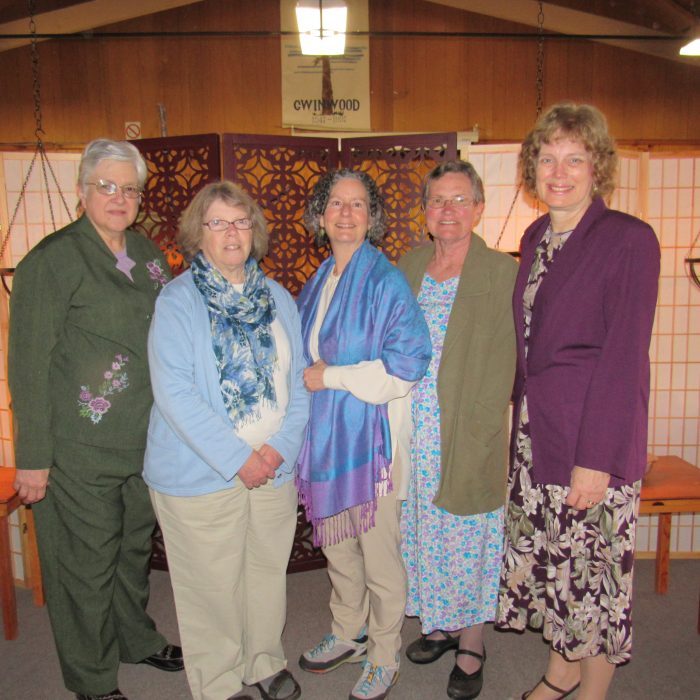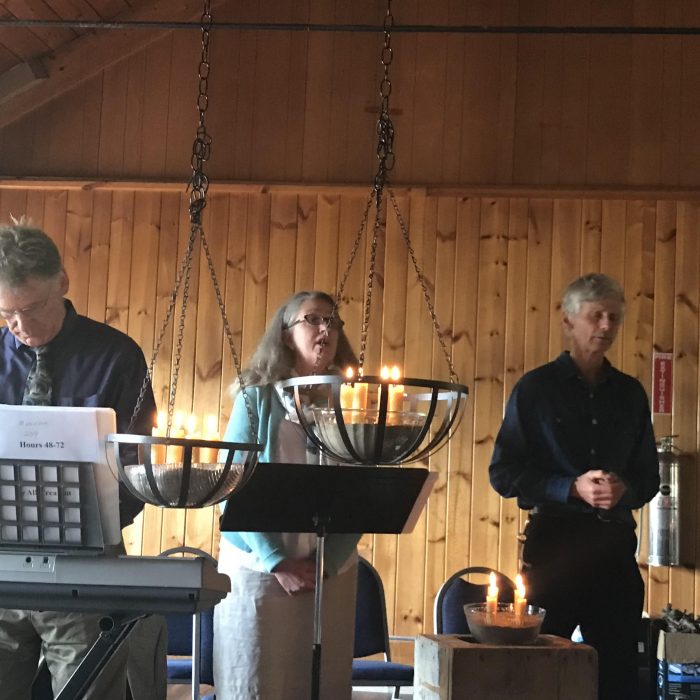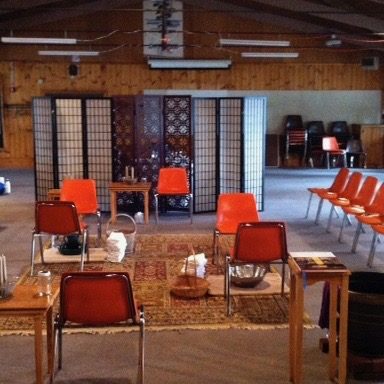Holy Wisdom Inclusive Catholic Community is a worshiping community, in Olympia, Washington and on Zoom, grounded in Roman Catholic tradition and liturgy. Inspired by Vatican II, which described the Church as the “People of God,” we desire to bring this vision to the 21st Century and live it.
Our annual celebration of Easter lasts for several days and takes place at Gwinwood Christian Camp and Conference Center (map below). Our celebration this year will be hybrid—both in person and on Zoom. If you would like to join us, virtually or in person, and you are not already on our Zoom list, contact us and we will be happy to add you. Here’s some additional information on the liturgy if you want to get a deeper sense of it:
- Complete 72 Hours of Easter Schedule of Events – 2024
- Specially Recommended Events for Those Commuting to Gwinwood or Attending on Zoom
- 72 Hours of Easter Songbook – 2024
- Frequently asked questions
- Information for Those Attending in Person
- Information for Those Attending on Zoom
- Items for Creating a Sacred Space in Your Home
- Atonement and Theosis Theology: Original Sin and Original Blessing
- Contact us with any additional questions.
Description of the Four Major Rites
The 72 Hours of Easter, also known as the Easter Triduum, is one liturgy, one mass, with four distinct rites. The word Triduum means three days (72 Hours). According to the United States Conference of Catholic Bishops, “Though chronologically three days, they are liturgically one day unfolding for us the unity of Christ’s Paschal Mystery.” One day that just happens to have three sunsets and three sunrises.
The 72 Hour celebration of Easter is the first pinnacle of the 100 Days. The scriptures of these days guide us to an experience of God’s deep desire to love us in the midst of community. We encounter this desire beginning with the intimacy of foot washing as Eucharist, and culminating in the renewal of our baptismal promises. Our rituals engage our bodies and all of our senses to help us move through the experience of life, death, grief and more life. These days are rich and full. Here is just a short glimpse of what happens at our celebration.
Thursday evening — The rite of Fire and Foot Washing welcomes us to the beginning of Easter. During this rite, we light the Easter fire, sing the Gloria and read the gospel story of Jesus washing the disciples’ feet. We also have the opportunity to wash each other’s feet as a form of Eucharist.
Friday afternoon — The rite of Reverencing the Cross of Shalom. On this evening, we read the Passion account from the Gospel of John, which is a triumphal passion where Jesus does not suffer. This is followed by the Nine Universal Prayers for the world. During this rite, we reverence the equidistant cross, which represents the tensions and struggles of our real lives as individuals and as communities. This cross symbolizes our deep desire to move toward unity in the midst of our diversity—to become Shalom.
Saturday evening — The rite of Great Night: Fire, Word, Vigil begins with the lighting of the Paschal Candle. After the Exultet is sung, we listen to scripture stories of God’s deep desire for us to be one with God, with each other and with all of creation.
Sunday morning — The rite of Water, Oil and Table. During this rite we sing the Litany of Saints, hear the story of Jesus’ resurrection and appearance to Mary of Magdala, and renew our Baptismal promises with word, water, and oil. We celebrate Table Eucharist and become what we are — the Body of Christ.
